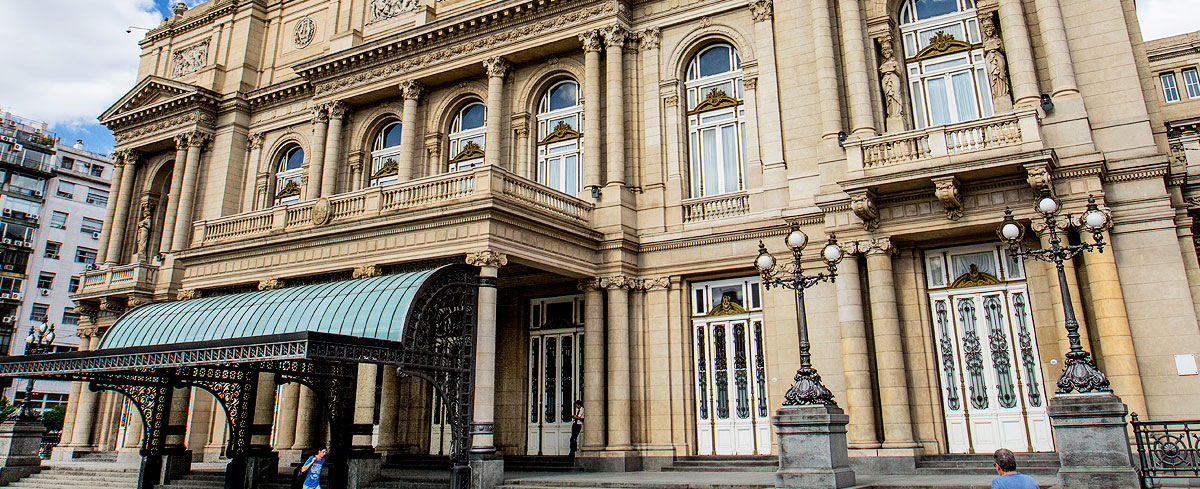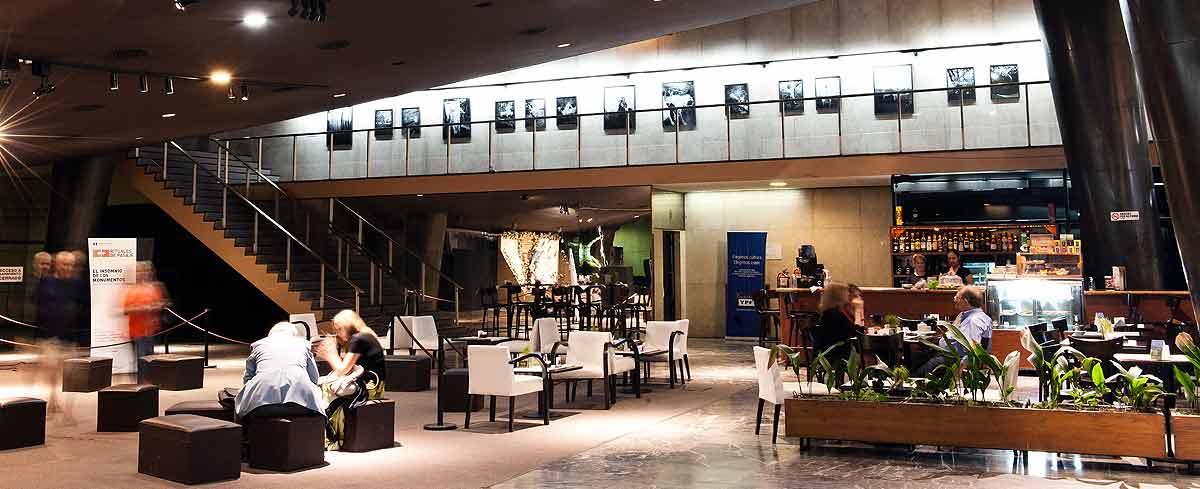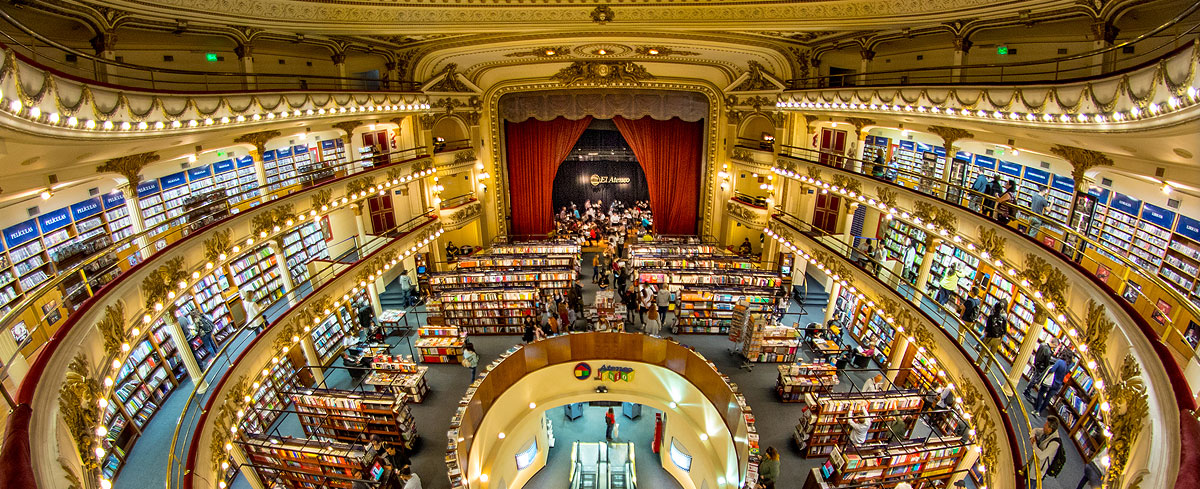Theatre
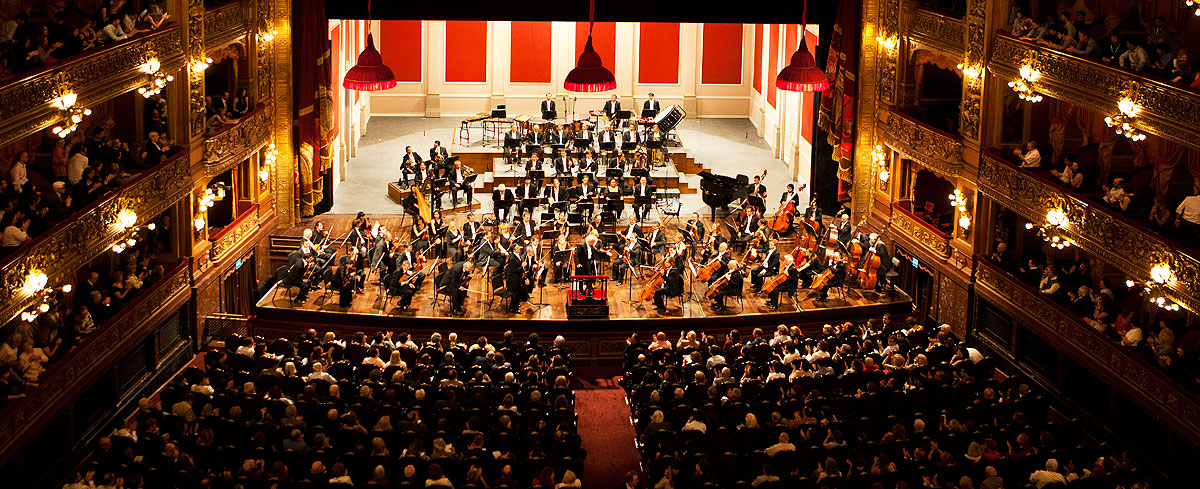
Buenos Aires has around 300 theatres, making it one of the best cities in the world for performing arts. Head along Av. Corrientes between Av. Callao and Av. 9 de Julio and you’re in BA’s very own Broadway. The city’s theatres show everything from musicals to ballet, comedy to circuses. You can download a list of theatres in the city here.
Most famous, of course, is the majestic Teatro Colón (Cerrito 618, San Nicolás). Often referred to in the same breath as London’s Royal Opera House and Milan’s La Scala, the Colón Theatre is a world-class venue for opera, ballet and classical music. With unparalleled acoustics and a gorgeous décor, it’s worth a peek inside even if you haven’t time for a show or a guided tour. You can follow performances live on the web by going to teatrocolon.org.ar/es/en-vivo.
Other standout theatres include:
Teatro Nacional de Cervantes (Av. Córdoba 1155, San Nicolás). Considered the main national stage theatre in Buenos Aires, the Teatro Nacional has three performance stages. Many comedy acts perform here too.
Teatro San Martín (Av. Corrientes 1530, Montserrat). The prestigious San Martín is part of the Centro Cultural General San Martín.
International theatre is celebrated in Buenos Aires at the bi-annual FIBA (Festival International de Buenos Aires). Every other spring, theatre and dance companies from across the world converge on the city to perform in a number of theatres.
BA has a lively and celebrated alternative theatre scene for emerging playwrights and smaller productions. Most of these theatres are located in the Almagro, San Telmo and Palermo areas and include the excellent Timbre4, La Carpintería and El Camarín de la Musas. For alternative theatre listings, check out the Alternativa Teatral website.
Cinema
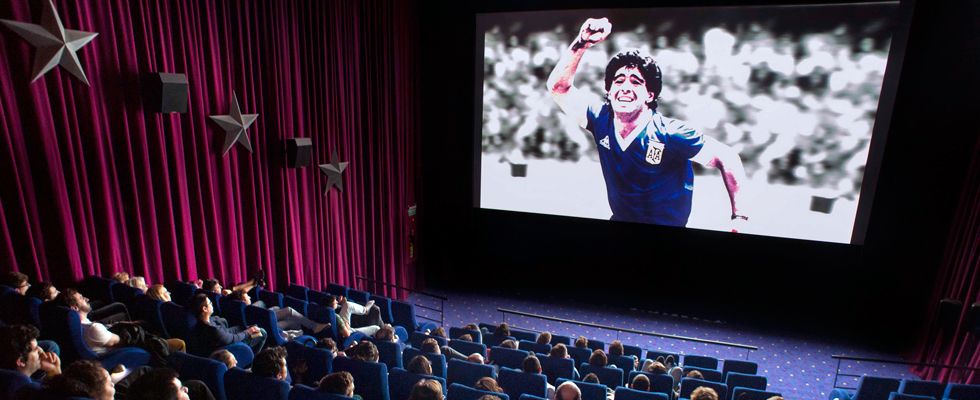
Cinemagoing is very popular in BA, with everything from modern multi-screen complexes (Atlas, Cinemark, Hoyts, Monumental, Multiplex, Showcase and Village) to more niche cultural venues (Cultural Centro Recoleta, MALBA, INCAA and Lorca) showing art-house and independent films.
Listings can be found on the Cines Argentinos website. Non-Spanish films are usually available both dubbed and in original language with subtitles (‘subtitulos’). Cinemas change their programming every Thursday.
The city’s International Independent Film Festival (BAFICI), one of the most important celebrations of film in Latin America, is held every April in cinemas across the city. Featuring over 400 films including international premieres, it's a major showcase of independent cinematic talent from across the globe.
Over the hot summer months, the Parque Rosedal tranforms into an outdoors drive-thru cinema ('autocine'). If you're in BA over January and February, visit disfrutemosba.buenosaires.gob.ar for information.
BA also has a thriving film-making scene, and is a popular location for international film shoots and commercials. The first animated feature film, El Apostól, was made in Buenos Aires in 1917, and in 2013 over 300 commercials were shot in the city. To get you in the mood for BA, here are some great porteño films to watch:
- La Historia Oficial (1985, Dir. Luis Puenzo)
- Esperando La Carroza (1985, Dir: Alejandro Doria)
- Nueve Reinas (2000, Dir. Fabián Bielinsky)
- El Secreto de Sus Ojos (2009, Dir. Juan José Campanella)
- El Elefante Blanco (2012, Dir. Pablo Trapero)
- Relatos Salvajes (2014, Dir. Damián Szifrón)
- Historias Minimas (2002, Dir. Carlos Sorin) Admittedly not set in BA at all, set entirely in windswept Patagonia, but such a heart-warming film and one that doesn’t star Ricardo Darín (unlike most of the above), we just had to list it.
Literature
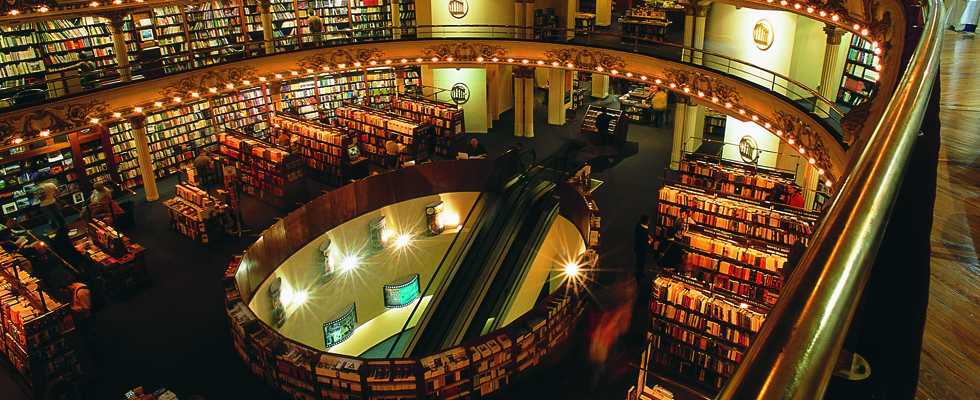
With over 800 bookstores, thousands of kioscos selling affordable paperbacks, a huge international book festival and a legacy of prestigious homegrown authors, Buenos Aires is a very literary city.
In fact, Buenos Aires has more bookshops per capita (25 for every 100,000 people) than any other city in the world (see here). In 2011, UNESCO awarded the city the title of ‘World Book Capital’, and in 2016, website The Culture Trip declared the city one of the 15 best places in the world for book lovers. The city is also home to one of the most stunning bookstores in the world, El Ateneo Grand Splendid (Av. Santa Fe 1860, Recoleta), a converted opera house and movie theatre, which retains a number of original architectural features (see above photo), and hosts the largest Spanish language book festival, the Feria Internacional del Libro, which attracts thousand of visitors every April/May.
In Buenos Aires, you can follow in the footsteps of literary giants like Jorge Luis Borges, Ernesto Sabato and Julio Cortàzar, who gained international acclaim for their highly experimental, literary fiction in the 20th century. Many of their favourite haunts still exist, so you can enjoy a coffee in some of the historic cafes where they met and wrote.
Bookstores night, held over a weekend every March, is another celebration of the city's rich literary culture. Bookstores along Avenida Corrientes open their doors throughout the night, with book readings, workshops, concerts and interviews with notable authors.
For casual perusers or seekers of rare volumes, the largest concentration of bookstores can be found amongst the theatres along Av. Corrientes, and on Av. de Mayo. They open late, catering to the pre- and post-theatre crowds.
For English-language books, the bookstore chain KEL stocks a range of English reading material, and Walrus Books (Estados Unidos 617, San Telmo) has an interesting collection of well-preserved second-hand books in English.
What to read:
Jorge Luis Borges' best-known anthologies of short stories and essays are Ficciones (1944), The Aleph (1949), and Labyrinths (1962), most of which are set in Buenos Aires, the city he considered ‘as eternal as water and air’. For Cortázar, Los Premios (1960), the hugely influential Hopscotch (1963) and 62: A Model Kit (1968) are three of his most prestigious works.
Other giants of 20th century Argentine literature include:
Adolfo Bioy Casares. A close friend and collaborator of Jorge Luis Borges, he is most famous for The Invention of Morel, often regarded as one of the best pieces of fantastic fiction ever written.
Leopoldo Marechal. Primarily a poet, Marechal also wrote the experimental and parodic novel Adam Buenosayres.
Manuel Puig. Another experimental writer, Puig incorporated pop-culture influences into his novels and spent much of his life in political exile.
Ernesto Sabato. A writer, painter and physicist, Sábato wrote three dark, existential novels: The Tunnel, On Heroes and Tombs, and The Angel of Darkness, which are considered among the masterpieces of Argentine literature.
Silvina Ocampo. Sister of Victoria Ocampo, the publisher of influential literary magazine Sur, and wife of Adolfo Bioy Casares, Silvina Ocampo remains highly acclaimed for her poerty and short stories.
More recent Argentine writers to gain international recognition include journalist Tomás Eloy Martínez who wrote fictionalised biographies of Juan Domingo Perón and his wife "Evita", in The Perón Novel and Santa Evita. In 2016, Eduardo Sacheri, author of The Secret In Their Eyes (the source of the Oscar-winning film starring Ricardo Darín), won the Alfaguera prize - one of the most prestigious literary prizes in Spanish language literature.
Music
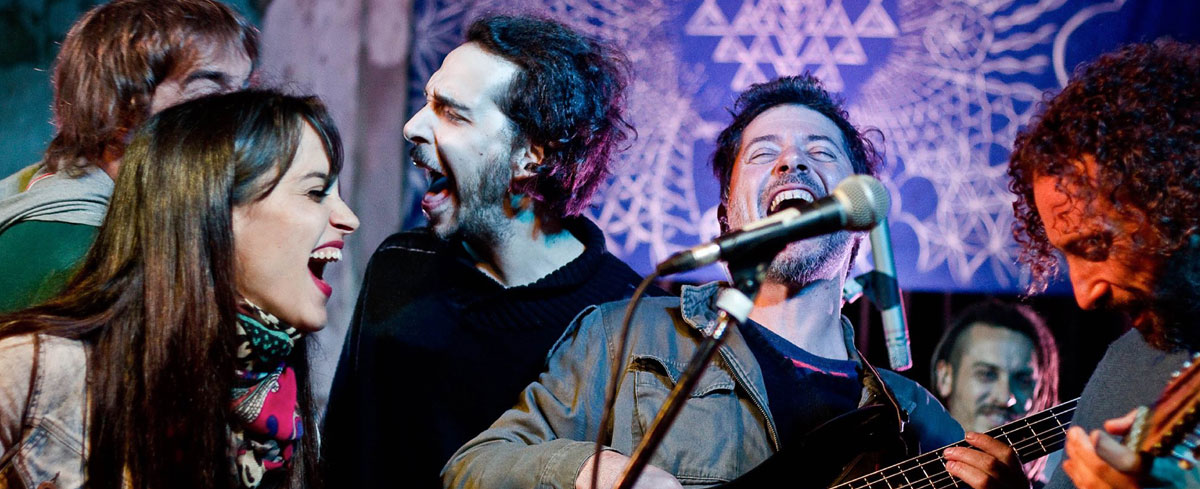
Buenos Aires is a city of music, from tango to rock and contemporary rhythms. There's a packed agenda of musical events at the city's bares notables, at acclaimed venues such as the Teatro Colón, and cultural spaces such as Centro Cultural San Martín, Usina del Arte and more. You'll find buskers throughout the city, particularly in Calle Florida, San Telmo and Plaza Francia, and even on board public transport. People come from all over to hear tango music in the city, and there are also important international festivals such as the International Jazz Festival, and the Ciudad Emergente festival of up-and-coming bands.
The Government of the City of Buenos Aires and the City Tourism Office do not take any responsibility for the information provided on the websites above.
